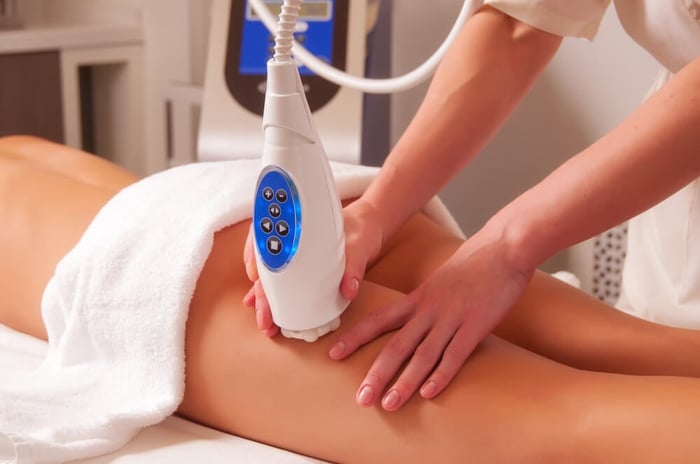Though it may not be common knowledge around town, the root canal is a major source of controversy in dentistry. Biologic dentists who take a holistic approach to dentistry and strongly believe in the tooth/body connection, believe that root canals often harbor pathogenic bacteria that can be a steady source of toxins in the body and contribute to systemic health problems.
Read on to learn more about the root canal procedure, the safety record, the concerns and available alternatives. And learn what healthy lifestyle habits can help you to avoid needing one in the first place.

What Is a Root Canal?
A root canal is a procedure that is performed on a damaged or diseased tooth by removing inflamed and infected pulp from the inside of the tooth. The inside of the tooth is then cleaned, disinfected, filled and sealed.
The procedure allows the natural tooth to be preserved for functional use without any pain or discomfort. The treated tooth looks totally normal and functions the same as it always did. Endodontists refer to this as ‘saving’ the tooth. It can be completed in one or two appointments and is comparable to getting a standard filling.
Is a Root Canal Safe?

The obvious benefits of root canals include the preservation of the tooth and a fairly easy, straightforward procedure. And they’re popular–with more than 15 million root canals performed yearly. But are they safe?
The American Association of Endodontists states that root canals are perfectly safe when performed correctly and there is no evidence that they could be linked to cancer or any other inflammatory diseases. But the process of carefully removing all microbes before sealing the tooth is very important and takes skill and experience.
On the other side of the equation, many holistic dentists claim that there are pathogenic bacteria found in nearly 100% of properly performed root canals and that it is almost impossible to remove all microbes from the inside of the tooth. In fact, one study was not far off from this claim finding that 90% of inspected root canals contained various forms of pathogenic microbial growth, including bacteria and fungi.
Due to this issue, dental professionals perform thousands of root canal clean-up procedures after old root canals start causing pain or other symptoms. In these cases they often find surprising links to broader health concerns and claim that removing the infected root canals has caused a swift return to better health for many of their patients. They suspect links between the trapped bacteria and widespread inflammation throughout the body, which then contributes to autoimmune conditions, long-term infections, heart disease, and even cancer.
Do I Need a Root Canal?

There is no question that there is a time and place for a root canal. The sheer number performed tells us they are needed. Here are a few symptoms that can indicate that you may need one.
-
Severe pain while chewing or biting
-
Pimples on the gums
-
A chipped or cracked tooth
-
Lingering sensitivity to hot or cold
-
Swollen or tender gums
-
Deep decay or darkening of the gums
Leaving an infected tooth in your mouth is never a good idea and will contribute to health consequences eventually. However, deciding what to do with a bad tooth is an individual decision and one size does not fit all. If you are suffering with a bad tooth, there are some rules of thumb to consider:
-
Make sure your dentist or endodontist is certified and experienced
-
Get a second opinion–often treatment recommendations vary greatly from one specialist to another
-
Ask the endodontist what percent chance will the root canal be successful - 100% or something less
-
Plan to continue regular dental check-ups and have root canals inspected so that any future problems will be caught early
-
Ask about alternatives to root canals–tooth pulling/replacement
How Much Does a Root Canal Cost?
The cost of a root canal largely depends on the severity of your tooth's condition, and whether or not you have insurance.
Forbes cites the American Dental Association in saying that with insurance, you can expect to pay anywhere from $200 to $1,472, depending on if it's a front tooth or a molar. Without insurance, expect to pay from $600 on. According to dental insurance provider Delta Dental, it's common for dental insurance plans to pay anywhere from 50 to 80 percent of the cost once your deductible has been met.
Alternatives to a Root Canal
If you have a tooth that is infected into the root it will require a root canal to save the tooth. However, as we learned, there are potential risks that go along with root canals. The alternative to saving the tooth is ‘not’ saving it–we pull it out! This has the advantage of no future worries about bacteria getting trapped into the sealed dead tooth, but presents the issues of a missing tooth.
My husband recently went this route when an endodontist recommended a root canal on a cracked tooth. The doctor couldn’t guarantee that the root canal would save the tooth–he gave it a 50 percent chance. So my husband just decided to have it pulled which was simple and easy. Now he needs to figure out what to do next. There are a lot of reasons why you don’t want to leave a tooth hole in your mouth: aesthetics, speech, bone loss, chewing/bite function, pressure/wear on other teeth, etc.
There are a few options for missing tooth replacement including implants, bridges and partial or full dentures. The top end would be implants, which are permanent and function just like natural teeth, but are more expensive. The number of implants has been steadily increasing in recent years with improvements in the technology. Dentists are using lots of high-tech materials (zirconia, ceramic, titanium) that are safe to have in your mouth and system for the long-term. It’s worth checking all the options.
Lifestyle Changes for Healthy Teeth

We have to end on a prevention note. Many problems with teeth and oral health can be attributed to poor lifestyle choices. That means we have at least some control over what happens to our teeth and how long we keep them! Here are some obvious and not-so-obvious tips:
-
Daily oil pulling (coconut oil is great for this)
-
Brush and floss regularly
-
Dental check-up every 6 months
-
Brush with a re-mineralizing toothpaste (such as Wellnesse toothpaste, Dr. Jen Natural Remineralizing Toothpaste)
-
Eat a healthy, balanced diet
-
Cut added sugar and processed food (especially sugary drinks)
-
Maintain gut health
-
Supplement with Vitamins D and K
One essential takeaway from this root canal controversy is the importance of choosing experienced dental providers who you can trust. Seek out great professional advice and then choose the approach that’s right for you.
This article is informational only and should not be treated as medical or dental advice. We recommend that you talk with your doctor or dentist for any personal concerns.

.JPG)


